WITNESS RADIO MILESTONES
Museveni private secretary grilled over directives on Land Fund payments
Published
7 years agoon

Byenkya: Please, state your name in full?
Kamukama: My name is Nawe Molly Kamukama
Byenkya: How old are you?
Kamukama: 45
Byenkya: What do you do for a living?
Kamukama: I work as a permanent secretary in the private Office of the President, which gives me the title of the Principal Private Secretary to the President.
Byenkya: And how long have you been doing this?
Kamukama: I was appointed in November 2016 as a permanent secretary.
Byenkya: You were invited here because we are conducting investigations into the operations of the Uganda Land Fund and it turned out that you had done some correspondences in relation to the Fund.
Kamukama: Yes
Byenkya: It has come up in different situations but among the witnesses we interviewed was the Minister for Lands, Ms Betty Amongi, and as we were discussing payments from the Land Fund and their criteria for making payments, she had a category called presidential directives. What do you know about this situation where there are presidential directives in respect of the Land Fund, whether you are aware the President makes directives of any sort?
Kamukama: My lord, part of my job is that I receive correspondences from the public, government agencies, ministries and departments. Some of them are petitioning the President on matters such as land encroachment from any area in the country. I cannot take such a letter to the President because it is just a claim and the President is not in his ordinary duties engaged in land matters. What I do is direct it to the line ministry. This because whereas it is a petition to the President, in essence, it is a petition to government, so it has to go to where there are technically competent people employed by government to answer to it. The ministry is requested to attend to it and manage. They are supposed to go on the ground, evaluate and see within the law what decision to make. And because it comes from the President, we require that whichever decision they will have made, they return to us to inform the President. Sometimes a matter can be on lands but it has a security component, may be somebody says people are threatening his life, so where life is threatened, you are not going to write only to the Lands ministry, you also have to write to the minister of Security to ensure that life is protected. That is how those letters come about and I am always telling them to attend and manage appropriately.
Byenkya: From your explanation, your letters are referrals of a petition of an issue?
Kamukama: Yes
Byenkya: And they are not directives?
Kamukama: Directives are written as such, by the way. For the directives to be written either by the President or myself, all the issues relating to that matter will have come to light. That means a directive is a decision in itself. It would be written, saying: “I direct you to do A, B, C…,” because the facts are clear either to the President or to myself. But normally directives are written as such and I am sure in your course of work, you will meet them.
Byenkya: So, if the President was making a directive, the title would be directive, it would not be a request?
Kamukama: The content in that letter would clearly state that it is a directive.
Byenkya: For comparison, Kamukama, I have a letter that the President wrote to the minister of Finance, Mr Matia Kasaija. May be you just look at it and have an idea what we should interpret that to be. It relates to the Land Fund as well [hands her the letter].
Kamukama: This is a letter from the President and I do not think I can really answer for him.
Byenkya: No, I just want you to interpret; is that a directive in your opinion?
Kamukama: I mean, a directive, don’t you see that statement on the last line?
Byenkya: Just read the statement
Kamukama: The statement reads, “I direct you to pay…”
Byenkya: So that would typically be how the President will do it.
Kamukama: Yes, because if you look through the content, he has already put the facts and he knows them.
Byenkya: In the letters you wrote, would you use similar language?
Kamukama: I would not because I would not be having facts on that matter because it is a claim from the public or department. When you say management, part of management is investigation, evaluation and all those things. Until that is done and clear to all government officials that these are the real facts, you cannot direct.
Byenkya: I wanted you to look at this letter written by Ms Amongi and read a couple of paragraphs and indicate the date.
Kamukama: (reads) November 23, 2016 addressed to the Chairperson of Uganda Land Commission
Byenkya: Read the title and the first paragraph.
Kamukama: (reads); The title is urgent payment for land compensation.
I refer to my earlier letter dated November 15 and taken into account the need for urgent compensation for the following beneficiaries for the Land Fund and reviewed my earlier position and allow the accounting officer ULC to pay the underlisted people for the available land fund resource for this quarter.
Byenkya: I want you to look at the columns and read out.
Kamukama: The authority to pay?
Byenkya: Yes, start the name and the authority to pay.
Kamukama: I see they have said letter by PPS to the President .
Byenkya: Yes, first read them out for the record and then we discuss it.
Kamukama: Letter by PPS to H.E the President for three of them.
Byenkya: Why I am bringing it to your attention is that this is the way your letters have been misinterpreted and applied.
Kamukama: By?
Byenkya: Well, in this case by the Minister for Lands. She is the author of that letter.
Kamukama: You should crosscheck the letters I wrote and see if they relate to this matter. I write to the minister or the permanent secretary for their attention and management. How they choose to manage, operate, they have the laws. I would not know what laws are governing the Land Fund; I do not know what criteria they use, how they go about their business. It cannot be that they are using just my letters. My duty is to bring it to their attention to act because even when this person is petitioning the President, it is about land and the land matters go to the ministry who are most suitable to do the work.
Byenkya: What concerns us is that when you write these letters, you also appreciate that they could be used in all sorts of ways and they could be used to appear to give the endorsement of the President’s office to a claim.
Kamukama: These letters are not only directed to ministry of Lands; they are directed to all government ministries and agencies and the Attorney General because in our ordinary work, we receive about 300 letters in a day. All those matters come from the public and they need to be attended to. Sometimes they come from a different ministry and they raise it to the President. So before it goes to the President, it has to be evaluated by all the concerned relevant bodies. By the way, when I get reports from ministries, I read through and brief the President who will sometimes direct me to write a Cabinet paper so that it moves to inform the policy.
Byenkya: This is why it is important for us to have this kind of discussion because I think you will appreciate that your letters carry the authority of the Office of the President. So, we do not want them to be misunderstood or misapplied.
Kamukama: I do not know what they use it for because every ministry has their terminology, which they use in their work. I also get letters from the ministers as an accounting officer and we use those letters and they are eventually paid but you pay within the law.
Byenkya: I agree that you should not abandon your mandate as an accounting officer but do you think in this case, your letters, the way you write them, do you think it is proper for somebody to categorise them as authority to pay?
Kamukama: I do not know what they categorise as authority to pay because for me, my issue is that I would have raised the matter with you. So the management of that matter is up to you and eventually when you make your informed decision as an accounting officer, then you brief the President because those letters are actually addressed to him. For all of us who are working and handling, we are handling them on his behalf. So he has to be informed.
Byenkya: Why I put a mark on those particular payments is because they have one common story you might have heard about by now if you have been following the proceedings of the commission. We had a witness called Richard Buzibira (lawyer), do you know him by any chance?
Kamukama: No
Byenkya: Buzibira was supposed to be an attorney of various people and received Shs13 billion from the land fund. These particular three names I marked use your letter being used as authority to pay; they are all payments which actually went to Buzibira and formed part of this Shs13 billion…. Buzibira gets to the land fund and gets paid and one of the things that he gets armed with is this letter from PPS to the President… The point is, we think these payments are not proper, when you look at the trend, pattern, frequency and amount, it seems to be a big scheme. This is why I want I wanted us to discuss for these letters flying out and people using them as an excuse to pay.
Kamukama: When you say letters are flying around, letters cannot fly around, no. these are serious matters. Somebody has written to the President; that cannot be a fly around document.
Byenkya: It was a kind of phrase to show that they are just so many.
Kamukama: Yes, there are so many letters and all of them require attention because they need a service from the government and they petitioned the overall boss of the Republic of Uganda. So, the relevant ministries, agencies and departments must look into those matters and investigate how true it is. If we receive such a petition as the Office of the President and keep quiet, what will happen to the petitioner? If you release such a document to the President, the answer you are going to get is ‘what do you want me to do with this? Where are the facts?’. That is why I write to the relevant ministries and actually sometimes it is the legal department that does the writing.
Byenkya: My final question to you would be; are there any lessons to learn because people with questionable claims got paid and in billions? Is there a way we can make sure that the authority of the President is not misunderstood or misused?
Kamukama: I think the authority of the President is known but I think what we need as a way forward is that more safeguards should be provided so that there are more stringent approvals on these payments so that more eyes can look at the claim, including Cabinet, because at the end of it all, the President and Cabinet members are answerable to the public.
Source: Daily Monitor
…
Related posts:
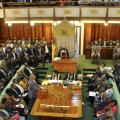
 Museveni orders giveaway of NFA land to Swiss firm
Museveni orders giveaway of NFA land to Swiss firm
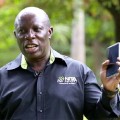 NITA boss cited in Shs 928m Land Fund mess
NITA boss cited in Shs 928m Land Fund mess
 Land probe saved government over Shs1 trillion in irregular payments, says Bamugemereire
Land probe saved government over Shs1 trillion in irregular payments, says Bamugemereire
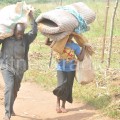 Land grabbers are ‘too powerful’, defied COVID-19 lockdown directives on land eviction – Gov’t
Land grabbers are ‘too powerful’, defied COVID-19 lockdown directives on land eviction – Gov’t
You may like
-


A tree planting Chinese Company, Formosa Limited in fresh illegal land eviction…
-
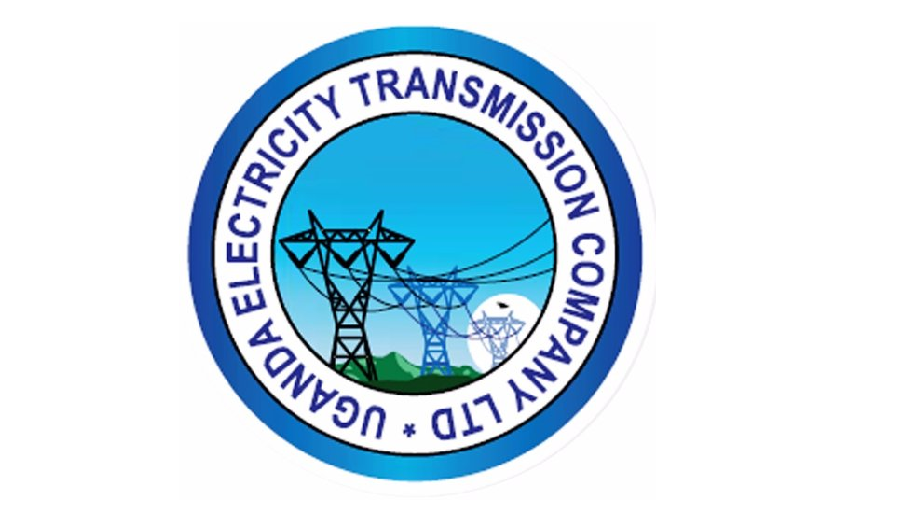

Electricity Transmission Company holds titles in Masaka as residents point to foul play
-


A long journey to freedom: Trial of 10 community members in Mityana flops
-
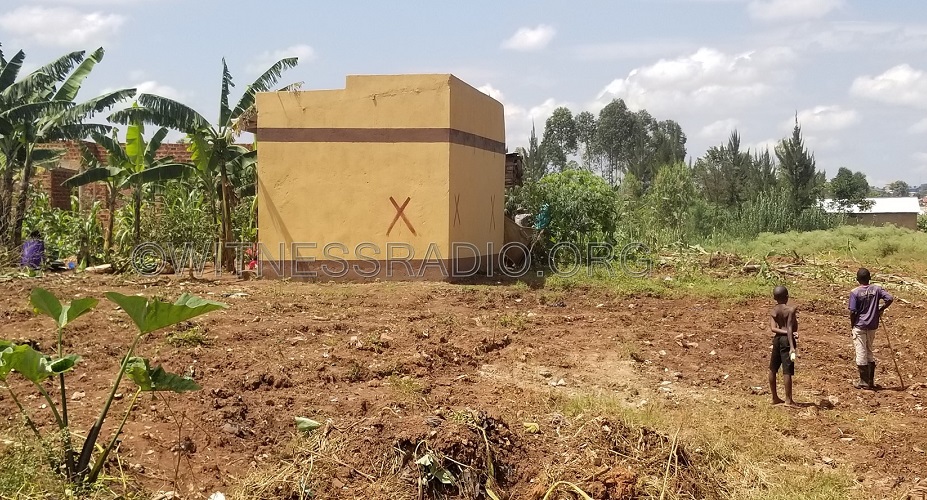

Tension as more than 300 poor families are being evicted by a World Bank-funded project…
-


Sad tales of how grabbers use foolery to grab community land
-
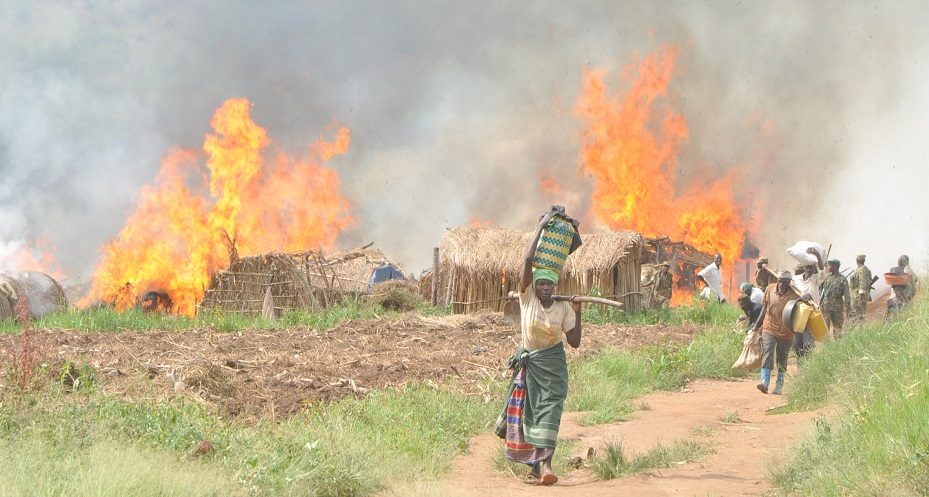

Land grabs victims in Uganda meet amid escalating cases of illegal evictions and rights violations
MEDIA FOR CHANGE NETWORK
Young activists fight to be heard as officials push forward on devastating project: ‘It is corporate greed’
Published
2 months agoon
August 27, 2025
“We refuse to inherit a damaged planet and devastated communities.”
Youth climate activists in Uganda protesting the East African Crude Oil Pipeline, or EACOP, are frustrated with the government’s response to their demonstration as the years-long project moves forward.
According to the country’s Daily Monitor, youth activists organized with End Fossil Occupy Uganda took to the streets of Kampala in early August to protest EACOP. The pipeline, under construction since about 2017 and now 62 percent complete, is set to transport crude oil from Uganda’s Tilenga and Kingfisher fields through Tanzania to the Indian Ocean port of Tanga by 2026.
Activists noted the devastating toll, with group spokesperson Felix Musinguzi saying that already around 13,000 people “have lost their land with unfair compensation” and estimating that around 90,000 more in Uganda and Tanzania could be affected. End Fossil Occupy Uganda has also warned of risks to vital water sources, including Lake Victoria, which it says 40 million people rely on.
The group has been calling on financial institutions to withdraw funding for the project. Following a demonstration at Stanbic Bank earlier in the month, 12 activists were arrested, according to the Daily Monitor.
Some protesters were seen holding signs reading “Every loan to big oil is a debt to our children” and “It’s not economic development; it is corporate greed.”
Meanwhile, the regional newspaper says the government has described the activist efforts as driven by foreign actors who mean to subvert economic progress.
EACOP’s site notes that its shareholders include French multinational TotalEnergies — owning 62 percent of the company’s shares — Uganda National Oil Company, Tanzania Petroleum Development Corporation, and China National Offshore Oil Corporation.
The wave of young people taking action against EACOP could be seen as a sign of growing public frustration over infrastructural projects that promise economic gain while bringing harm to local communities and ecosystems. Activists say residents face costly threats from pipeline development, such as forced displacement and the loss of livelihoods.
Environmental hazards to Lake Victoria could also disrupt water supplies and food systems, bringing the potential for both financial and health impacts. Just 10 years ago, an oil spill in Kenya caused a humanitarian crisis. The Kenya Pipeline Company reportedly attributed the spill to pipeline corrosion, which led to contamination of the Thange River and severe illness.
The EACOP project has already locked the region into close to a decade of development, and concerns about the pipeline and continued investments in carbon-intensive systems go back just as long. Youth activists, as well as concerned citizens of all ages, say efforts to move toward climate resilience can’t wait. “As young people, we refuse to inherit a damaged planet and devastated communities,” Musinguzi said, per the Monitor.
Source: The Cool Down
Related posts:

 Put people above profits – Climate Activists urge Total to defund EACOP
Put people above profits – Climate Activists urge Total to defund EACOP
 EACOP: The number of activists arrested for opposing the project is already soaring in just a few months of 2025
EACOP: The number of activists arrested for opposing the project is already soaring in just a few months of 2025
 EACOP activism under Siege: Activists are reportedly criminalized for opposing oil pipeline project in Uganda.
EACOP activism under Siege: Activists are reportedly criminalized for opposing oil pipeline project in Uganda.
 The East African Court of Justice fixes the ruling date for a petition challenging the EACOP project.
The East African Court of Justice fixes the ruling date for a petition challenging the EACOP project.
WITNESS RADIO MILESTONES
Why matooke farming is losing ground in Bukedi
Published
2 months agoon
August 27, 2025
On a humid morning in Namusango Village, Kamonkoli South Ward, Kamonkoli Town Council in Budaka District, 58-year-old farmer James Kainja walks at the edge of what used to be his flourishing matooke garden. For generations, the green banana plant—matooke—stood tall in Uganda’s farmlands, its broad leaves swaying in the wind and its heavy bunches promising a warm, hearty meal. But in Bukedi Sub-region today, that story is fading. Between the tired banana stools, spear grass has taken over. A few bunches hang small and low quality. “We used to harvest every week,” Mr Kainja says, dusting his palms.
“Now, it is once in a while and the money is not worth the struggle,” he adds. Across Bukedi, particularly in Pallisa, Budaka, Butebo, and Kibuku, the banana plants are shrinking back, replaced by maize, cassava, rice, and other faster-growing crops. The sub-region that once sent truckloads of matooke to nearby districts now measures its banana harvest in small piles under tarpaulin. Where the green canopy of banana leaves once dominated, the landscape has changed. For many farmers, the decision is not about abandoning tradition but about survival.
Matooke as culture
In many Bukedi households, matooke still holds cultural value, especially during weddings, funerals, and community gatherings. But with fewer plantations, sourcing enough bunches has become harder and more expensive. Matooke is now imported into Bukedi from Mbale and Mbarara. Mr Abubakar Nanghejje, an elder in Kibuku, warns: “If this trend continues, our children may only know matooke from stories. We are losing more than a crop—we are losing a piece of who we are.”
He adds that matooke, once abundant, is now a luxury: “People only access matooke during ceremonies because the cost of a bunch has turned expensive,” he explains. Within Kibuku Town Council, women sell matooke in pieces: three or four fingers for Shs1,000, while a complete bunch costs between Shs30,000 and Shs35,000. This contrasts sharply with central and western Uganda, where matooke is more than a crop—it is an identity, a culture, and a livelihood. Yet across the country, banana plantations are thinning out, replaced by maize, beans, or simply abandoned.
Farmers’ voices
Mr Peter Mwigala, a 73-year-old farmer from Bubulanga Village, recalls with nostalgia: “I grew matooke for 30 years. But now my plantation is less than half what it used to be. The pests are too many, the prices are too low, and the rains are no longer reliable.” His story echoes across villages, evidence of a slow, steady decline in matooke production. This decline has unfolded over two to three decades, rather than as a sudden collapse. Agricultural researchers point to several reasons. Among them, banana bacterial wilt (BBW), banana weevils, and nematodes that have devastated plantations in major banana-growing areas. These pests cause premature ripening, rotting, and eventual uprooting of infected plants.
“When wilt enters your plantation, you can lose everything in one season,” says Mr Abner Botiri, an agriculture officer in Budaka. He further explains that erratic rainfall and prolonged dry spells also take a toll. Matooke thrives in consistent moisture, but under drought stress it yields smaller bunches. Repeated losses have led some farmers to abandon the crop entirely. Continuous cultivation without soil management has also depleted many banana-growing soils. Beyond agronomic challenges, the economics of matooke farming have shifted dramatically. Local market prices fluctuate widely depending on supply, while transport costs have risen sharply.
Mr John Gwanyi, a 71-year-old farmer, recalls: “In the 1980s and 1990s, matooke farmers could educate children through primary, secondary, and tertiary levels, and still cover basic needs. Today, a whole plantation might not pay for one term’s school fees.” Urbanisation has worsened the trend. Younger generations moving to towns now eat rice, spaghetti, and bread more frequently.
The once sacred matooke meal is no longer the undisputed centrepiece of Ugandan dining tables. Meanwhile, land fragmentation leaves families with smaller plots, unable to sustain large banana plantations. In some areas, higher-value or quicker-return crops like coffee, passion fruit, or maize dominate. As one agricultural economist notes: “A bunch of matooke takes nine months to mature, but maize can be ready in three months. For cash-strapped farmers, that difference matters.
Government interventions
Government and research institutions have made several attempts to address the situation. The National Agricultural Research Organisation (NARO) has introduced resistant banana varieties and promoted good agronomic practices. NGOs are training farmers in mulching, proper spacing, and integrated pest management. Still, the decline carries a cultural weight. In Buganda, for instance, matooke is central to marriage ceremonies, community gatherings, and daily life.
“When you serve matooke at a function, it shows respect,” explains Mr Badiru Kirya, a cultural leader in Obwa Ikumbania bwa Bugwere. Yet, Mr Kirya attributes part of the decline to newer banana varieties introduced by research agencies. “The old varieties planted by our grandparents could withstand weather changes better. These new varieties are weaker against climate volatility,” he says. He also notes that soil infertility and population pressure have accelerated the decline, as families squeeze more onto smaller pieces of land.
National standing
Uganda remains one of the world’s largest banana consumers, with per capita consumption estimated at 250–300 kg annually in some regions. Yet, national banana production has generally declined. According to the Uganda Bureau of Statistics (UBOS) 2024 census, only 27.1 percent of households participate in banana cultivation. Dr Sadik Kassim, the NARO deputy director general in-charge of agricultural promotion, highlights several factors. “Soil fertility has gone low, while pests and disease build-up have grossly affected matooke gardens. Erratic rainfall and climate change further reduce yields.
Poor agricultural practices have made the decline worse,” he says. However, Dr Kassim dismisses the claim that new technologies are to blame. Similarly, Dr Rabooni Tumuhimbise, the director of research at Rwebitaba Zonal Agricultural Research and Development Institute, said: “As of now, I am not aware that Bukedi has registered a decline in banana production. This needs verification before conclusions.” But farmers and local leaders insist the reality is clear: matooke is disappearing from Bukedi. Mr Arthur Wako Mboizi, a seasoned politician and opinion leader, argues: “Bukedi has drastically registered a total decline in banana production due to various factors, including soil infertility, diseases, and erratic rainfall.”
Efforts are underway to add value. Under the Presidential Initiative on Banana, NARO and Kilimo Trust have developed matooke-based products such as flour, bread, and cakes. More than 13 million Ugandans consume bananas as their staple, and 75 percent of farmers grow them, contributing nearly $440 million annually to the economy. Yet, for Bukedi, the reality is sobering. The once proud producer of matooke is a shadow of its former self. As Mr Nanghejje, the Kibuku elder, put it: “We are losing more than a crop. We are losing a piece of who we are.”
Background
In 2024, national banana production was estimated at 6 million tonnes annually, 70 percent of which was consumed at household level and 30 percent sold.
The Banana Merchandise Trade Statistics Bulletin (2024) shows export earnings rose from $2.1 million in June 2023 to $2.4 million in June 2024. Still, yields remain below potential—currently 5–30 tonnes per hectare compared to an attainable 60–70 tonnes. Uganda’s banana losses to wilt disease are massive, with officials estimating a 71.4 percent loss of potential harvest annually, worth nearly $300 million.
Source: Monitor
Related posts:

 Govt injects Shs47b into cassava growing in Bukedi
Govt injects Shs47b into cassava growing in Bukedi
 Uganda’s natives are becoming more powerless; losing land everyday, says a New Research Report
Uganda’s natives are becoming more powerless; losing land everyday, says a New Research Report
 Omoro farmers task Naro on crop varieties
Omoro farmers task Naro on crop varieties
 Uganda losing agricultural advantage to neighbours – UN.
Uganda losing agricultural advantage to neighbours – UN.
MEDIA FOR CHANGE NETWORK
Cases against anti-EACOP activism are skyrocketing in Uganda. Witness Radio has documented close to 60 cases in the last eight months.
Published
2 months agoon
August 7, 2025
By the dedicated efforts of the Witness Radio team.
The Witness Radio team has documented nearly 60 cases of arrest, detention, and prosecution targeting activists protesting the East African Crude Oil Pipeline (EACOP) since January 2025.
The $5 billion EACOP project, led by TotalEnergies and its partners, involves the construction of a 1,444km heated pipeline from Hoima in Uganda to Tanga in Tanzania. This pipeline, which will transport crude oil from the Tilenga and Kingfisher fields, has been a subject of controversy due to its potential environmental and social impacts.
As activism against the EACOP Project grows in Uganda, youth activists leading the cause face strong resistance from the government and its agents, who are pushing for the development of oil activities, including EACOP. Their bravery in the face of such adversity is truly inspiring.
The activists have continuously been suppressed and weakened with torture, unlawful arrests, and prolonged detentions accompanied by unscrupulous charges. The injustice they face is a call for empathy from all who hear their story.
The latest incident happened on Friday, August 1, 2025, when the police brutally arrested 12 environmental activists at Stanbic Bank Headquarters in Kampala. The urgency of the situation is apparent, as the activists were protesting against the bank’s financing of the EACOP project.
On March 26, 2025, EACOP Ltd., the company in charge of the construction and future operation of the EACOP project, announced new project financing from regional banks such as Stanbic Bank Uganda Limited, KCB Bank Uganda, African Export-Import Bank (Afreximbank), the Standard Bank of South Africa Limited, and the Islamic Corporation for the Development of the Private Sector (ICD). The announcement sparked widespread alarm and outcry, with activists urging the banks to immediately withdraw their support and halt the financing of the project.
These activists, individuals from Civil Society Organisations (CSOs) and environmental enthusiasts, strongly oppose the implementation of the EACOP project. They cite its harmful effects, including the displacement of thousands of people, damage to sensitive ecosystems, a threat to water resources, and exacerbating climate change mainly through carbon emissions. They argue that the short-term economic benefits do not justify these long-term consequences.
In doing their work, they have ended up in the hands of the authorities with numerous charges slapped against them. The latest remandees include Teopista Nakyambade, Shammy Nalwadda, Dorothy Asio, Shafik Kalyango, Habibu Nalungu, Noah Kafiiti, Ismael Zziwa, Ivan Wamboga, Akram Katende, Baker Tamale, Keisha Ali, and Mark Makobe.
On the same day of their arrest, the victims were arraigned before the Buganda Road Chief Magistrate Winnie Nankya, who charged them with common nuisance. She later remanded them to Luzira prison until August 18, 2025.
Section 160 of the Penal Code Act, Cap 120 states that a person convicted of common nuisance faces a one-year imprisonment.
In response, the Stanbic Bank manager for corporate communications, Mr. Kenneth Agutamba, confirmed that the bank is financing the EACOP project, justifying that it aligns with and balances environmental sustainability and economic development in the country.
Ever since this year started, Witness Radio has documented 56 cases of arrests and illegal detentions of EACOP activists, with most of them being charged with common nuisance. Below is a chronology of these incidents as they happened.
| Date | Incident | Charge |
| 26th Feb. 2025 | 11 activists were arrested while marching to the European Union offices deliver a petition concerning TotalEnergies’ involvement in harmful fossil fuels in Uganda. | Common nuisance |
| 19th Mar. 2025 | 4 activists were arrested while marching to the Parliament of Uganda to deliver a petition to the speaker, Anita Annet Among, in protest of the ongoing construction of the EACOP Project. | Common nuisance |
| 2nd April, 2025 | 9 activists were arrested while marching to Stanbic bank offices. | Common nuisance |
| 23rd of April, 2025 | A group of 11 activists were arrested as peacefully went to deliver a petition to KCB Uganda offices challenging its will to fund the EACOP project. | Criminal trespass. |
| 21 May 2025 | 9 activists arrested while protesting KCB financing of the EACOP | Common nuisance. |
| 1 Aug. 2025. | 12 activists arrested for protesting the Stanbic bank funding. | common nuisance |
According to Witness Radio’s special report, “Activism on Trial: Despite the increasing repressive measures, Uganda’s EACOP Protesters are achieving unexpected victories in the country’s justice systems,” released last month, a case review revealed that while Uganda’s justice system is being used to suppress the activities of youth activists opposing the EACOP project, many of these cases have lacked merit and were ultimately dismissed.
The report found that none of the activists had been convicted, though they continue to face prolonged court processes marked by repeated adjournments. “Of a sample of 20 documented cases since 2022 involving the arrest of over 180 activists, 9 case files have either been dismissed by the courts or closed by the police due to lack of prosecution, another signal indicating the relevance and legitimacy of their work, while 11 cases remain ongoing,” the report noted.
Related posts:

 EACOP activism under Siege: Activists are reportedly criminalized for opposing oil pipeline project in Uganda.
EACOP activism under Siege: Activists are reportedly criminalized for opposing oil pipeline project in Uganda.
 Breaking: over 350,000 acres of land were grabbed during Witness Radio – Uganda’s seven months ban.
Breaking: over 350,000 acres of land were grabbed during Witness Radio – Uganda’s seven months ban.
 EACOP: The number of activists arrested for opposing the project is already soaring in just a few months of 2025
EACOP: The number of activists arrested for opposing the project is already soaring in just a few months of 2025
 Crackdown on EACOP protesters intensifies: 35 Activists arrested in just four months.
Crackdown on EACOP protesters intensifies: 35 Activists arrested in just four months.

Know Your Land rights and environmental protection laws: a case of a refreshed radio program transferring legal knowledge to local and indigenous communities to protect their land and the environment at Witness Radio.

Gov’t Seeks Land to Establish Palm Oil Mill and Nursery in Busoga

New! The Eyes on a Just Energy Transition in Africa Program is now live on Witness Radio.

RDCs, Local Leaders Accused of Grabbing 70-Acre Ancestral Land

Uganda is on a mission to plant over 40 million trees by October 3, 2025, a crucial step in combating the alarming decline in its forest cover.

The 4th African Forum on Business and Human Rights: The rapidly escalating investment in Africa is urgently eroding environmental conservation and disregarding the dignity, the land, and human rights of the African people.

Oil palm tree growing in Uganda: The National Oil Palm Project is threatening to evict hundreds of smallholder farmers to expand its operations.

The 4th African Forum on Business and Human Rights: The African continent is lagging, with only a few member states having adopted the National Action Plan (NAP) on Business and Human Rights.

Innovative Finance from Canada projects positive impact on local communities.
Over 5000 Indigenous Communities evicted in Kiryandongo District
Petition To Land Inquiry Commission Over Human Rights In Kiryandongo District
Invisible victims of Uganda Land Grabs
Resource Center
- REPARATORY AND CLIMATE JUSTICE MUST BE AT THE CORE OF COP30, SAY GLOBAL LEADERS AND MOVEMENTS
- LAND GRABS AT GUNPOINT REPORT IN KIRYANDONGO DISTRICT
- THOSE OIL LIARS! THEY DESTROYED MY BUSINESS!
- RESEARCH BRIEF -TOURISM POTENTIAL OF GREATER MASAKA -MARCH 2025
- The Mouila Declaration of the Informal Alliance against the Expansion of Industrial Monocultures
- FORCED LAND EVICTIONS IN UGANDA TRENDS RIGHTS OF DEFENDERS IMPACT AND CALL FOR ACTION
- 12 KEY DEMANDS FROM CSOS TO WORLD LEADERS AT THE OPENING OF COP16 IN SAUDI ARABIA
- PRESENDIANTIAL DIRECTIVE BANNING ALL LAND EVICTIONS IN UGANDA
Legal Framework
READ BY CATEGORY
Newsletter
Trending
-
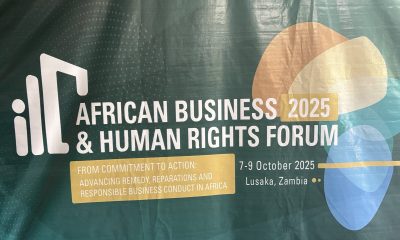
 MEDIA FOR CHANGE NETWORK2 weeks ago
MEDIA FOR CHANGE NETWORK2 weeks agoThe 4th African Forum on Business and Human Rights: The rapidly escalating investment in Africa is urgently eroding environmental conservation and disregarding the dignity, the land, and human rights of the African people.
-
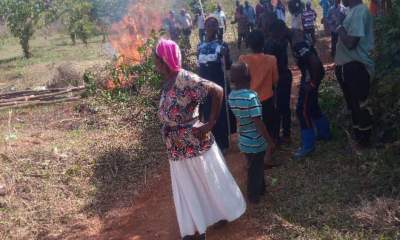
 MEDIA FOR CHANGE NETWORK7 days ago
MEDIA FOR CHANGE NETWORK7 days agoOil palm tree growing in Uganda: The National Oil Palm Project is threatening to evict hundreds of smallholder farmers to expand its operations.
-
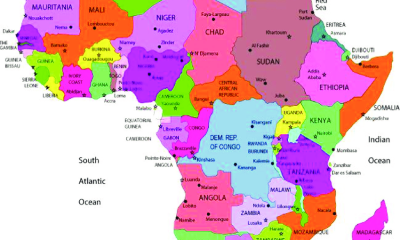
 MEDIA FOR CHANGE NETWORK2 weeks ago
MEDIA FOR CHANGE NETWORK2 weeks agoThe 4th African Forum on Business and Human Rights: The African continent is lagging, with only a few member states having adopted the National Action Plan (NAP) on Business and Human Rights.
-
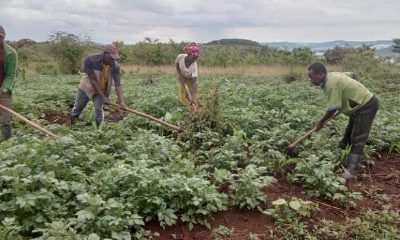
 MEDIA FOR CHANGE NETWORK2 weeks ago
MEDIA FOR CHANGE NETWORK2 weeks agoThe EAC Seed and Plant Varieties Bill 2025 targets organic seeds, aiming to replace them with modified seeds, say smallholder farmers.
-
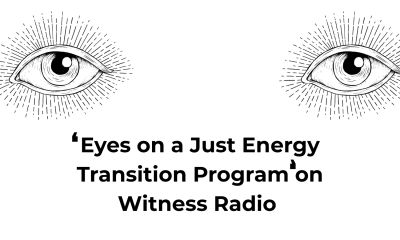
 MEDIA FOR CHANGE NETWORK5 days ago
MEDIA FOR CHANGE NETWORK5 days agoNew! The Eyes on a Just Energy Transition in Africa Program is now live on Witness Radio.
-

 MEDIA FOR CHANGE NETWORK2 weeks ago
MEDIA FOR CHANGE NETWORK2 weeks agoUse COP30 in Belém, Brazil, to fix the historical injustices meted out against Afro-descendant and Indigenous Peoples – CSOs demand.
-
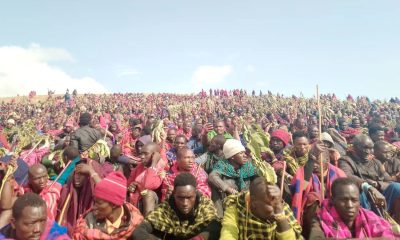
 NGO WORK2 weeks ago
NGO WORK2 weeks agoThe Oakland Institute Calls on the Tanzanian Presidential Land Commissions to Respect & Ensure Rights of Maasai Living in the Ngorongoro Conservation Area
-
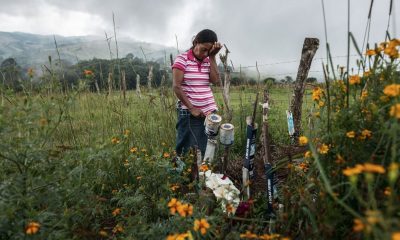
 NGO WORK2 weeks ago
NGO WORK2 weeks agoDocumenting killings and disappearances of land and environmental defenders
